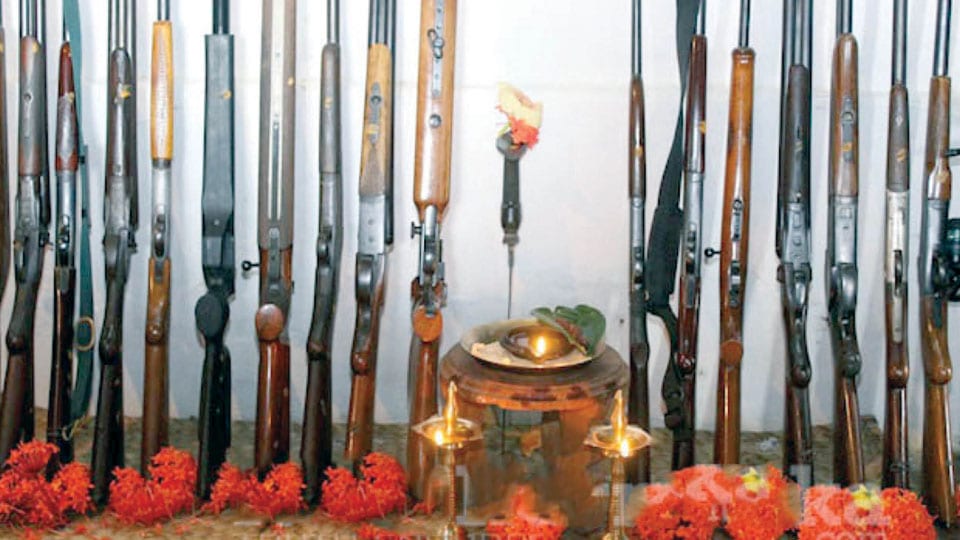Madikeri: Kodavas, both men and women beautifully dressed in their traditional attire, celebrated Kailpoldh festival with religious fervour and traditional gaiety across the district yesterday. As the district reeled under natural calamities continuously for three years and outbreak of COVID-19 now, the festival was limited only for traditional celebrations this time.
Kailpoldh, the harvest festival is the time for the Kodavas to feast after involving in hard labour of ploughing, sowing and transplanting of rice. The word Kailpoldh means a festival of armoury or weapons. Kail means armoury/weapon and Poldh means festival. The whole festival is about the completion of the transplantation of crops and the celebration that follows the hard work behind the completion of the task.
Generally, Kailpoldh is celebrated on the Sept. 3. It begins on the 18th day after the sun enters the Simha Raasi. Kodavas place their traditional weapons like guns, swords, knives, spears, bows and arrows in the prayer room near the hanging prayer lamp (thookbolcha) after carefully cleaning them.
They decorate the weapons with flowers and pray and make offerings to the Kodava deities – Goddess Cauvery, the chief preceptor (Mahaguru Igguthappa) and the supreme ancestor (Guru Karana) asking for the well-being of their crops and to give them strength to protect it from wild animals.
The traditional food prepared on this occasion is rice and meat dishes. Along with these the other dishes prepared are, steamed dough balls called Kadumbutt, Otti, Paaputt, Nooputt, along with meat dishes such as Pandi Kari, Koli Kari and Onak Yerchi curry as well as desserts like akki payasam are also cooked and served.
Later, fun-filled events are held in which every family members participate. Traditional delicacies are savoured by the family members together.








Recent Comments